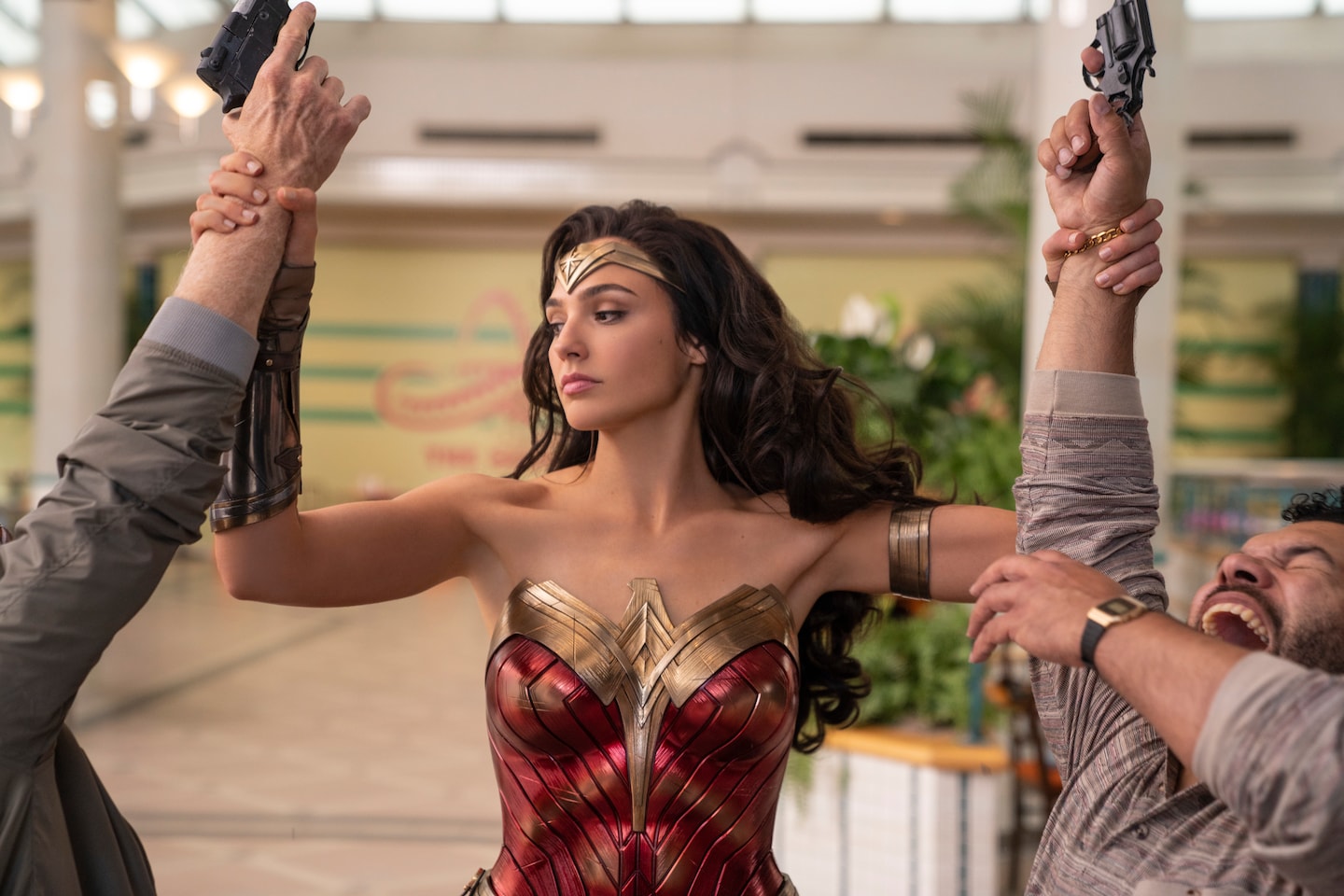Warner Bros delays ‘Wonder Woman 1984’ by nearly 3 months, highlighting the difficulty of reopening

While theaters in many cities have reopened, moviegoers have shown only a limited interest in returning to them. That was made clear by the mediocre performance of Christopher Nolan’s “Tenet” in the U.S. over the Labor Day weekend, when the Warner Bros. released pulled in $20.2 million, less than a third of what it might have achieved in typical times.
The studio had hoped “Wonder Woman,” Patty Jenkins’s sequel to her 2017 smash, would be the back half of a one-two punch that could jolt the filmgoing business back to life after six dormant months. But the reluctance of theatergoers to attend showings of “Tenet” was an indication that the time has not yet arrived for a return to normal business, at least for the film industry.
“Tenet” has been bedeviled by bans on indoor theaters in New York and Los Angeles, the country’s two largest moviegoing markets. Local officials have given little indication of when those bans will be lifted, a likely factor in the “Wonder Woman” postponement.
Warner Bros. Pictures Group Chairman Toby Emmerich sought to put a positive spin on the “Wonder Woman” news. He called the sequel, in which Gal Gadot’s Diana Prince is dropped into a 1980′s-era Cold War conflict, “an incredibly dynamic film that moviegoers of all ages around the world will absolutely love,” without offering an explanation for the delay.
But the news was widely read within Hollywood as a hoisting of a white flag, at least temporarily. Warner Bros. had been more bullish on theaters than its rivals, even the theater-focused Disney, which opted to retail “Mulan” as a premium offering on its Disney Plus streaming service instead of putting it in U.S. theaters.
The “Wonder Woman” postponement does clear a little more room for “Tenet,” which Warner Bros. and theater owners can play for several months without competition. The next major scheduled release is now Disney’s Marvel movie “Black Widow” on Nov. 6.
Executives at Warner Bros. have urged patience in interpreting last weekend’s “Tenet” results, saying they shouldn’t be judged for at least a few more weeks and probably not until New York and Los Angeles have been reopened.
Lifted restrictions in America’s large coastal cities, however, may solve only part of the problem. The Midwest, with its key market in Chicago, has generally allowed theaters to reopen. But cases there have been surging in recent weeks, and not all theaters are comfortable opening; regional chains such as Classic Cinemas, which operates 121 screens in Illinois and Wisconsin, remain closed.
The “Wonder Woman” postponement also amplified a larger point: simply reopening a business does not mean people will come to it. From restaurants that have struggled because of a lack of diners to universities that have seen inconsistent on-campus attendance to Disney World shortening its hours with lower-than-expected traffic, reopenings have not always meant a resurgence.
Plans are further complicated by emerging reports of reinfection, which could keep more people at home.
Friday’s announcement was the latest frustration for U.S. theater owners, who crave revenue after a half-year with little of it. A spokesman for the National Association of Theatre Owners trade group declined to comment on the move.
The news is also discouraging to theater owners overseas, where the coronavirus has been corralled in some territories and “Tenet” has in fact done well. Mooky Greidinger, chief executive of Cineworld, the world’s second-largest chain, told The Washington Post earlier this week he was hopeful that studios would see the potential in the U.S. and up their pace of movie releasing, aiding theaters everywhere. Cineworld, which operates Regal in the U.S., also has many locations in the United Kingdom, Canada, Eastern Europe and the Middle East.
Still, the delay will protect the studio against any fall surges in Europe; France, Germany and Spain have all recently hit case numbers not seen since the pandemic’s early days.
Greidinger said that while U.S. theaters remain under capacity restrictions, countries such as Hungary and the Czech Republic are now at 100 percent. China, too, has seen a theatrical resurgence since reopening, as both “Tenet” and homegrown war epic “The Eight Hundred” have done big business; the latter has grossed an eye-popping $336 million since coming out three weeks ago.
The executive said he remained optimistic that studios would keep pushing. “We need product and they need us open,” Greidinger said. He noted that he foresaw a rebound in the theatrical business, slow but sure, in a similar manner to bars and restaurants.
But individual restaurants can succeed in ways movies can’t, insiders say. A film distribution executive who spoke on the condition of anonymity because they were not authorized by their company to talk to the press said that Friday’s news highlights the issue faced by studios: Movies as designed in 2020, with pricey budgets and large-scale marketing campaigns, need to be able to play from coast to coast to succeed.
“You’re trying to open a movie nationally with no national consistency,” the executive said. “And that’s not a recipe for success.”






